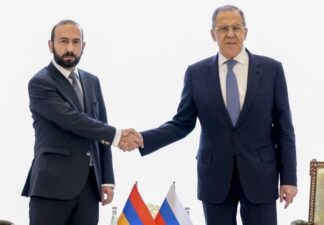By Dr. Loqman Radpey
Turkey’s bold foreign policy moves in recent years reflect a determined effort to redefine its regional and global role. From its military interventions in Syria to its growing engagement with BRICS, Ankara’s actions reveal a broader strategy. These ambitions challenge the international order.
Turkey’s involvement in Syria underscores its increasingly interventionist approach to the Middle East. By actively supporting jihadist and terrorist groups, Ankara has positioned itself as a key player in the Sunni-Shiite power struggle. This strategy aligns with President Recep Tayyip Erdogan’s vision of a neo-Ottoman sphere of influence, where Turkey assumes a leadership role in the Sunni Muslim world. Unlike traditional statecraft, Turkey’s geopolitical imagination prioritizes intervention and influence. This is not solely about immediate security concerns; it is about shaping the regional order to reflect Turkey’s historical and ideological ambitions.
Turkey’s actions in Syria and Iraq also signal a deeper shift away from its Western alliances. Erdogan’s government has cultivated closer ties with Russia, challenging NATO’s cohesion and trans-Atlantic interests, exemplified by acquisition of Russia’s S-400 air defense system — a move that alienated NATO allies and raised security concerns about espionage risks to U.S. bases in Turkey.
Even as Turkey provides light weapons to Ukraine, Erdogan’s efforts to circumvent Russian sanctions highlight Ankara’s nuanced balancing act. This historical strategy of playing the Russian card seeks to maintain economic ties with Moscow while carving out an independent role in the global order.
Turkey’s interest in joining BRICS reflects its broader aspirations to challenge Western dominance. Erdogan has framed this engagement as a commitment to “diversity of approaches, identities, and politics in the global economic system.” However, this rhetoric masks a more strategic aim: leveraging Turkey’s unique position between East and West to maximize its geopolitical clout. The move also asserts a reversion to the natural region, which is indicative of an imperial Islamic order. Some BRICS members advocate for a “civilizational state.” model that prioritizes sovereignty and cultural identity over liberal democratic norms. This vision resonates with Erdogan’s own neo-Ottoman worldview, which emphasizes Turkey’s colonial distinctiveness.









